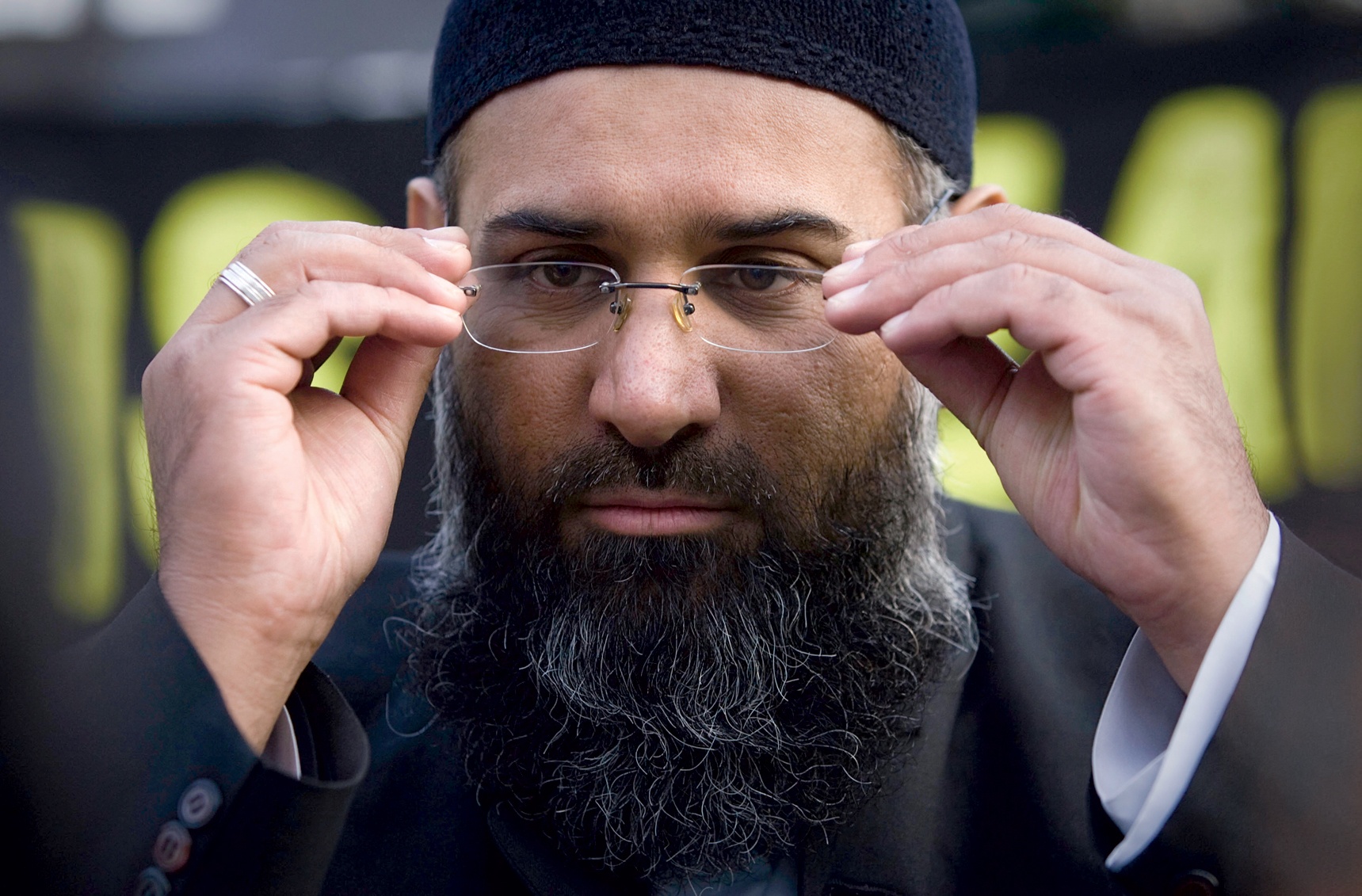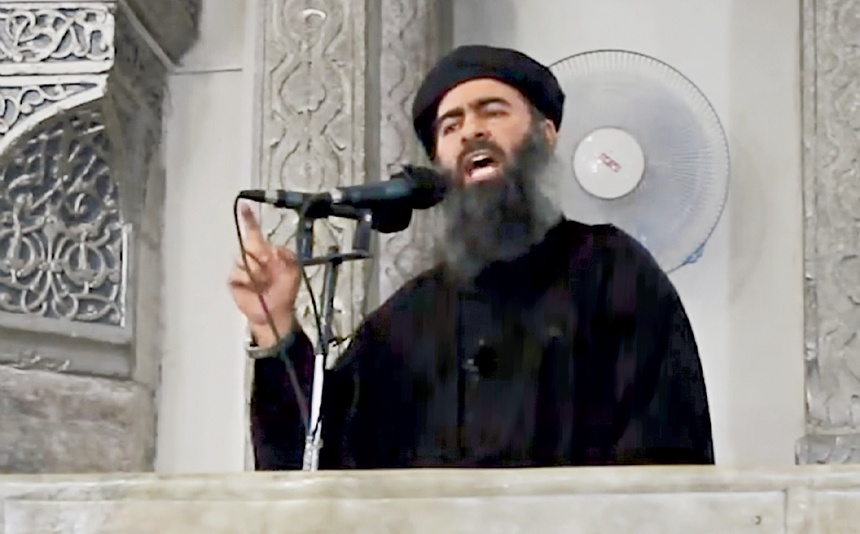[h=3]Territory[/h]Tens of thousands of foreign Muslims are thought to have immigrated to the Islamic State. Recruits hail from France, the United Kingdom, Belgium, Germany, Holland, Australia, Indonesia, the United States, and many other places. Many have come to fight, and many intend to die.
Peter R. Neumann, a professor at King’s College London, told me that online voices have been essential to spreading propaganda and ensuring that newcomers know what to believe. Online recruitment has also widened the demographics of the jihadist community, by allowing conservative Muslim women—physically isolated in their homes—to reach out to recruiters, radicalize, and arrange passage to Syria. Through its appeals to both genders, the Islamic State hopes to build a complete society.
In November, I traveled to Australia to meet Musa Cerantonio, a 30-year-old man whom Neumann and other researchers had identified as one of the two most important “new spiritual authorities” guiding foreigners to join the Islamic State. For three years he was a televangelist on Iqraa TV in Cairo, but he left after the station objected to his frequent calls to establish a caliphate. Now he preaches on Facebook and Twitter.
Cerantonio—a big, friendly man with a bookish demeanor—told me he blanches at beheading videos. He hates seeing the violence, even though supporters of the Islamic State are required to endorse it. (He speaks out, controversially among jihadists, against suicide bombing, on the grounds that God forbids suicide; he differs from the Islamic State on a few other points as well.) He has the kind of unkempt facial hair one sees on certain overgrown fans of The Lord of the Rings, and his obsession with Islamic apocalypticism felt familiar. He seemed to be living out a drama that looks, from an outsider’s perspective, like a medieval fantasy novel, only with real blood.
Last June, Cerantonio and his wife tried to emigrate—he wouldn’t say to where (“It’s illegal to go to Syria,” he said cagily)—but they were caught en route, in the Philippines, and he was deported back to Australia for overstaying his visa. Australia has criminalized attempts to join or travel to the Islamic State, and has confiscated Cerantonio’s passport. He is stuck in Melbourne, where he is well known to the local constabulary. If Cerantonio were caught facilitating the movement of individuals to the Islamic State, he would be imprisoned. So far, though, he is free—a technically unaffiliated ideologue who nonetheless speaks with what other jihadists have taken to be a reliable voice on matters of the Islamic State’s doctrine.
We met for lunch in Footscray, a dense, multicultural Melbourne suburb that’s home to Lonely Planet, the travel-guide publisher. Cerantonio grew up there in a half-Irish, half-Calabrian family. On a typical street one can find African restaurants, Vietnamese shops, and young Arabs walking around in the Salafi uniform of scraggly beard, long shirt, and trousers ending halfway down the calves.
Cerantonio explained the joy he felt when Baghdadi was declared the caliph on June 29—and the sudden, magnetic attraction that Mesopotamia began to exert on him and his friends. “I was in a hotel [in the Philippines], and I saw the declaration on television,” he told me. “And I was just amazed, and I’m like, Why am I stuck here in this bloody room?”
The last caliphate was the Ottoman empire, which reached its peak in the 16th century and then experienced a long decline, until the founder of the Republic of Turkey, Mustafa Kemal Atatürk, euthanized it in 1924. But Cerantonio, like many supporters of the Islamic State, doesn’t acknowledge that caliphate as legitimate, because it didn’t fully enforce Islamic law, which requires stonings and slavery and amputations, and because its caliphs were not descended from the tribe of the Prophet, the Quraysh.
Baghdadi spoke at length of the importance of the caliphate in his Mosul sermon. He said that to revive the institution of the caliphate—which had not functioned except in name for about 1,000 years—was a communal obligation. He and his loyalists had “hastened to declare the caliphate and place an imam” at its head, he said. “This is a duty upon the Muslims—a duty that has been lost for centuries … The Muslims sin by losing it, and they must always seek to establish it.” Like bin Laden before him, Baghdadi spoke floridly, with frequent scriptural allusion and command of classical rhetoric. Unlike bin Laden, and unlike those false caliphs of the Ottoman empire, he is Qurayshi.
The caliphate, Cerantonio told me, is not just a political entity but also a vehicle for salvation. Islamic State propaganda regularly reports the pledges of baya’a (allegiance) rolling in from jihadist groups across the Muslim world. Cerantonio quoted a Prophetic saying, that to die without pledging allegiance is to die jahil (ignorant) and therefore die a “death of disbelief.” Consider how Muslims (or, for that matter, Christians) imagine God deals with the souls of people who die without learning about the one true religion. They are neither obviously saved nor definitively condemned. Similarly, Cerantonio said, the Muslim who acknowledges one omnipotent god and prays, but who dies without pledging himself to a valid caliph and incurring the obligations of that oath, has failed to live a fully Islamic life. I pointed out that this means the vast majority of Muslims in history, and all who passed away between 1924 and 2014, died a death of disbelief. Cerantonio nodded gravely. “I would go so far as to say that Islam has been reestablished” by the caliphate.
I asked him about his own baya’a, and he quickly corrected me: “I didn’t say that I’d pledged allegiance.” Under Australian law, he reminded me, giving baya’a to the Islamic State was illegal. “But I agree that [Baghdadi] fulfills the requirements,” he continued. “I’m just going to wink at you, and you take that to mean whatever you want.”
To be the caliph, one must meet conditions outlined in Sunni law—being a Muslim adult man of Quraysh descent; exhibiting moral probity and physical and mental integrity; and having ’amr, or authority. This last criterion, Cerantonio said, is the hardest to fulfill, and requires that the caliph have territory in which he can enforce Islamic law. Baghdadi’s Islamic State achieved that long before June 29, Cerantonio said, and as soon as it did, a Western convert within the group’s ranks—Cerantonio described him as “something of a leader”—began murmuring about the religious obligation to declare a caliphate. He and others spoke quietly to those in power and told them that further delay would be sinful.
Cerantonio said a faction arose that was prepared to make war on Baghdadi’s group if it delayed any further. They prepared a letter to various powerful members of ISIS, airing their displeasure at the failure to appoint a caliph, but were pacified by Adnani, the spokesman, who let them in on a secret—that a caliphate had already been declared, long before the public announcement. They had their legitimate caliph, and at that point there was only one option. “If he’s legitimate,” Cerantonio said, “you must give him the baya’a.”
After Baghdadi’s July sermon, a stream of jihadists began flowing daily into Syria with renewed motivation. Jürgen Todenhöfer, a German author and former politician who visited the Islamic State in December, reported the arrival of 100 fighters at one Turkish-border recruitment station in just two days. His report, among others, suggests a still-steady inflow of foreigners, ready to give up everything at home for a shot at paradise in the worst place on Earth.
IN London, a week before my meal with Cerantonio, I met with three ex-members of a banned Islamist group called Al Muhajiroun (The Emigrants): Anjem Choudary, Abu Baraa, and Abdul Muhid. They all expressed desire to emigrate to the Islamic State, as many of their colleagues already had, but the authorities had confiscated their passports. Like Cerantonio, they regarded the caliphate as the only righteous government on Earth, though none would confess having pledged allegiance. Their principal goal in meeting me was to explain what the Islamic State stands for, and how its policies reflect God’s law.
Choudary, 48, is the group’s former leader. He frequently appears on cable news, as one of the few people producers can book who will defend the Islamic State vociferously, until his mike is cut. He has a reputation in the United Kingdom as a loathsome blowhard, but he and his disciples sincerely believe in the Islamic State and, on matters of doctrine, speak in its voice. Choudary and the others feature prominently in the Twitter feeds of Islamic State residents, and Abu Baraa maintains a YouTube channel to answer questions about Sharia.
Since September, authorities have been investigating the three men on suspicion of supporting terrorism. Because of this investigation, they had to meet me separately: communication among them would have violated the terms of their bail. But speaking with them felt like speaking with the same person wearing different masks. Choudary met me in a candy shop in the East London suburb of Ilford. He was dressed smartly, in a crisp blue tunic reaching nearly to his ankles, and sipped a Red Bull while we talked.
Before the caliphate, “maybe 85 percent of the Sharia was absent from our lives,” Choudary told me. “These laws are in abeyance until we havekhilafa”—a caliphate—“and now we have one.” Without a caliphate, for example, individual vigilantes are not obliged to amputate the hands of thieves they catch in the act. But create a caliphate, and this law, along with a huge body of other jurisprudence, suddenly awakens. In theory, all Muslims are obliged to immigrate to the territory where the caliph is applying these laws. One of Choudary’s prize students, a convert from Hinduism named Abu Rumaysah, evaded police to bring his family of five from London to Syria in November. On the day I met Choudary, Abu Rumaysah tweeted out a picture of himself with a Kalashnikov in one arm and his newborn son in the other. Hashtag: #GenerationKhilafah.
The caliph is required to implement Sharia. Any deviation will compel those who have pledged allegiance to inform the caliph in private of his error and, in extreme cases, to excommunicate and replace him if he persists. (“I have been plagued with this great matter, plagued with this responsibility, and it is a heavy responsibility,” Baghdadi said in his sermon.) In return, the caliph commands obedience—and those who persist in supporting non-Muslim governments, after being duly warned and educated about their sin, are considered apostates.
Choudary said Sharia has been misunderstood because of its incomplete application by regimes such as Saudi Arabia, which does behead murderers and cut off thieves’ hands. “The problem,” he explained, “is that when places like Saudi Arabia just implement the penal code, and don’t provide the social and economic justice of the Sharia—the whole package—they simply engender hatred toward the Sharia.” That whole package, he said, would include free housing, food, and clothing for all, though of course anyone who wished to enrich himself with work could do so.
Abdul Muhid, 32, continued along these lines. He was dressed in mujahideen chic when I met him at a local restaurant: scruffy beard, Afghan cap, and a wallet outside of his clothes, attached with what looked like a shoulder holster. When we sat down, he was eager to discuss welfare. The Islamic State may have medieval-style punishments for moral crimes (lashes for boozing or fornication, stoning for adultery), but its social-welfare program is, at least in some aspects, progressive to a degree that would please an MSNBC pundit. Health care, he said, is free. (“Isn’t it free in Britain, too?,” I asked. “Not really,” he said. “Some procedures aren’t covered, such as vision.”) This provision of social welfare was not, he said, a policy choice of the Islamic State, but a policy obligation inherent in God’s law.







